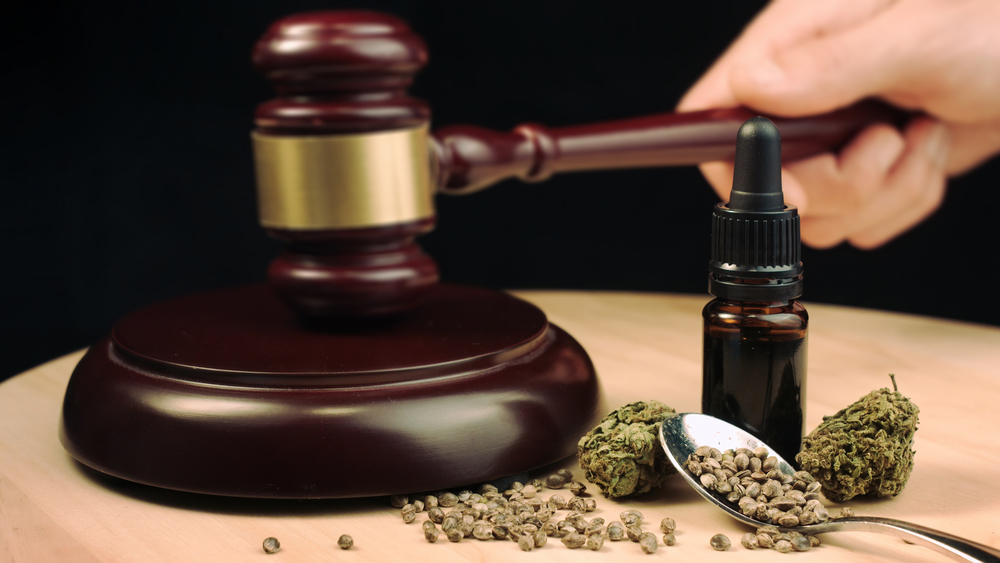
Cannabis, marijuana and hemp products on court table with judges gavel. Illegal crime concept.
The federal government legalized industrial hemp and its extracts with the 2018 Farm Bill. Just over a year later, the Drug Enforcement Agency (DEA) modified its hemp rules to further clarify the extracts hemp processors can legally work with. That rule has not sat well with the hemp industry since implementation. Now they are going to court in hopes of getting it thrown out.
At issue is whether hemp extracts with more than 0.3% THC can be legally utilized by CBD processors as long as the final product meets the legal threshold for CBD. In other words, the final product cannot contain more than 0.3% THC. The DEA says no. The hemp industry claims the DEA does not have the authority to make that decision.
-
Hemp’s Confusing Nature
It is interesting to point out that the U.S. Court of Appeals for the D.C. Circuit isn’t even sure there is enough to the DEA rule to constitute a legitimate legal case. How can that be? It is because of the confusing nature of hemp. Biologically speaking, hemp is a variety of cannabis. So is marijuana. The legal distinction between the two is solely related to THC content.
A cannabis plant with 0.3% or less THC by volume is legally considered hemp. Cannabis plants with a higher volume are considered marijuana. Moreover, extracts from both plants are classified according to the same rules. This suggests that a hemp extract with a THC level higher than the legal threshold is not actually a CBD product. It is a THC product.
-
The Processor’s Point of View
The processor’s point of view is that intermediate products do not matter. It is what ends up on the retail shelf. They often cite the fact that they might use the exact same hemp extractor to extract CBD oil from dozens of different hemp strains. Each of those crude oils has its own unique cannabinoid and terpene profile. It is not until the crude is distilled that processors determine the volume of each compound in a finished product.
CedarStoneIndustry, a Houston company that supplies hemp extraction equipment to processors, says that extraction itself plays very little role in determining THC concentrations in retail products. However, there is one exception: full-spectrum CBD oil.
Hemp extraction creates a product known as crude oil. This crude contains all the compounds extracted from hemp biomass. If it is filtered and sold as-is, it becomes what the industry refers to as full-spectrum oil. A full-spectrum oil with a THC content higher than the legal threshold becomes a problem. It is no longer a CBD product according to the law.
-
Exceeding Its Legal Authority
The hemp industry insists that the DEA has exceeded its legal authority with a 2020 rule that prohibits CBD processors from starting with crude oil that contains more than the legally allowed volume of THC. Adhering to that rule forces processors to be much more selective about the biomass they purchase.
It also forces them to dispose of any biomass that, upon further testing, produces crude with too much THC. Because cannabinoid levels can vary so greatly between different crops of industrial hemp, processors risk having to throw away significant amounts of biomass because of the rule. Some also find themselves facing a limited biomass supply because they have to be more discriminating.
A hemp extractor doesn’t know the difference between one crude oil and another. The DEA does, and a 2020 rule it imposed aims to make sure CBD processors acknowledge the difference as well. Now we wait to see what the court decides.




